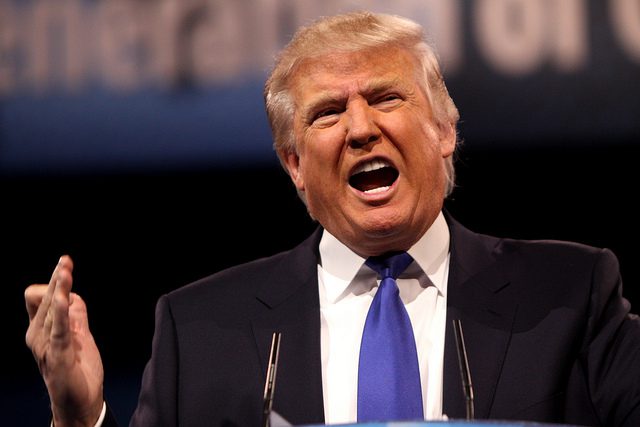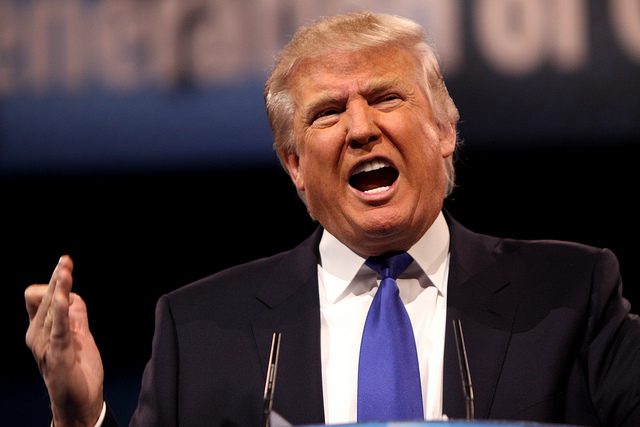
To some Americans, Michael Flynn’s shocking plea to come clean about the Trump-Russian connection meant impeachment might be around the corner. Impeachment in the United States is an enumerated power of the council that enables formal charges to be brought against a general officer of government for conferred violations. So, could Flynn’s guilty confession become President’s Donald J. Trump’s fall?
On Friday, Dec. 1, 2017, Flynn decided to break his silence. He now says Trump told him to reach out to the Russians after the 2016 election but before the January induction.
Flynn suddenly pleaded guilty in government court to one count of “adamantly and purposely” putting forth “false, invented and deceitful expressions” to the FBI. The plea was in regards to his correspondences with Russia’s minister last December. This all took place after Trump had named Flynn his national security counselor. With all of this going on, many spectators think Trump’s road to impeachment is on its way, but is it that easy?
The Error
According to ABC News, it might not be that simple. Overnight, things took a surprising turn. Brian Moss, an investigative news analyst who fills in as Chief Investigative Correspondent for ABC News, made a mistake. At first, Ross reported Friday morning that Flynn was set up to affirm that Trump, as a presidential candidate, had told him to contact the Russians.
Seven hours later, Ross said on “World News Tonight” that his news story was really that Flynn was set up to affirm Trump made the demand as president-to-be. On Saturday evening, ABC News said Ross were suspended for a month without pay for what they referred to as “genuine mistake.”
ABC News said, Ross announced data that was “plain out wrong,” and did so without anybody “having at any point settled on a decision that we would go to air with that data.”
What Is the 25th Amendment?
The 25th Amendment used to be one of the lesser-known amendments to the United States Constitution, yet of late, an ever-increasing number of individuals are discussing it. However, what is the 25th Amendment — and why is this becoming the talk of the town?
Received on February 1967, the 25th Amendment says the president can be expelled from office if the more significant part of their bureau decides the president “can’t release the powers and obligations of his office.”
Even so, that is only the vaguest piece of the amendment. The 25th Amendment additionally lays out the line of progression for who will move into the presidential position. Additionally, it says the president can send a letter to the Speaker of the House and President Pro-Tempore of the Senate stating that he is briefly unfit to successfully conintue as the person in charge of the U.S.
The amendment has rarely been invoked. However, one exception was when President George W. Bush transferred powers to Vice President Dick Cheney during a 2007 medical procedure. The Trump era brought in a whole new wave of 25th Amendment fever. Discussion about the 25th Amendment after President Trump’s presidential win became the hot topic.
Impeachment Back in The Spotlight
As indicated through an examination of Google Trends, in the previous five years there was moderately little — if any — search activity for the amendment until Nov. 13, a week after the 2016 presidential win. By February, the number of searches for the 25th Amendment significantly expanded, and have continued to increase.
The amendment is back in the spotlight today, due to a Vanity Fair article that reported then-adviser Steve Bannon disclosed to President Trump that he does not need to be stressed over prosecution or impeachment. Or maybe, Bannon supposedly stated, Trump might need to be concerned about the 25th Amendment. To which Trump supposedly reacted: “What’s that?”
Short History Lesson of Impeachment
Although rare, history does show that impeachment has been an issue. In all, eight U.S. presidents have confronted conceivable impeachment—with altogether different outcomes. On Jan. 10, 1843, John Tyler became the first. Diplomat John M. Botts, of Virginia, wanted Tyler out of the White House. To do this, Botts first had to arrange for an advisory group to explore charges of wrongdoing against Tyler. Botts tried hard to find evidence for Tyler’s impeachment. However, things did not make it far. After a short verbal confrontation, nevertheless, the House of Representatives voted down Botts’ determination to see President Tyler removed.
However, Andrew Johnson, was not as fortunate. Johnson ascended from vice president to president after the elimination of Abraham Lincoln, was indicted in March 1868. His impeachment was over his choice to reject Secretary of War Edwin M. Stanton.
Johnson was not going out without a fight. It turns out that the impeachment trial, on May 26, 1868, Congress concluded with Johnson’s rivals lacking the votes to get rid of Johnson. As a result, he finished the rest of his term.
The most famous is the impeachment of President Richard M. Nixon. He confronted prosecution over his contribution in the Watergate scandal and its aftermath. The House of Representatives endorsed three articles of indictment against Nixon. This made him the second U.S. president, after Johnson, to confront a possible hearing before the Congress. Nevertheless, Nixon wrote his resignation letter and removed himself from office in 1974. Nixon took action before Congress could remove him.
President Bill Clinton also faced the wrath of impeachment. In 1998, President Clinton was impeached over accusations of lying and obstruction of justice. This all stemmed from a lawsuit filed against him that involved the Monica Lewinsky scandal. Even though the House of Representatives overwhelmingly affirmed two articles of accusation against Clinton, he was eventually vindicated by Congress the following year. In 2000, Clinton went on to complete his second four-year tenure in office.
Impeaching Trump: The Ups and Downs
According to political researchers, impeaching President Trump has its pros and cons. Starting with the advantages, many Americans believe Trump is unfit to lead the nation. As clarified in an incredible piece by Bob Bauer in Lawfare, Americans are encountering a progressing “chaotic era,” because of Trump’s character defects. Others believe that Vice President Mike Pence is a better candidate. This is due to his political experience. Others believe he is just downright more capable to do the job. While liberals may stress that a unified Republican government driven by a capable president would pass harmful laws. The option—a clumsy government buried in a ceaseless emergency is more awful.
Some citizens go on to say that impeachment might help reinforce political norms that they feel Trump has destroyed. Leading among them are the following:
• The rule against irreconcilable circumstance and covering of money related premiums
• The government against a political obstruction in law requirement capacities.
When it comes to the downsides, many Americans believe impeachment could fail. There is a good chance that not everyone in Congress will be on board. It is possible a more significant part of Congress will choose not to vote in favor of impeachment. Also, a super-majority of Americans think Representatives will not vote in favor of an impeachment. An unsuccessful impeachment could reinforce the Trump administration and the conviction that the government is regulated by crooked leaders. The indictment of Clinton expanded public support for him, as measured by the surveys.
Another downfall is that the spilling of intelligence to the Russians might not have happened, and regardless of whether it did, it might have been justified, or sensible considering the current situation, or passable somehow.
Introducing Michael Flynn
According to Flynn, something did happen, and it might not be justified. He has consented to a bargain deal where he confessed to “willfully and purposely” putting forth “false, invented and fraudulent statements” to the FBI concerning discussions with Russia’s minister.
Flynn is blamed for erroneously asserting that he had not asked Russia’s ambassador to the U.S., Sergey Kislyak, on Dec. 29, 2016, “to cease from intensifying the situation in response to consents that the United States had imposed against Russia that same day.” Flynn confessed that day and admitted that he was participating in the exploration by Mueller.
Meanwhile, Trump has been tweeting on Flynn all the way into Saturday night nonstop. In these tweets, he has even brought up claims against Hillary Clinton and inquiring why the Justice Department has not been investigating allegations against her.
Trump tweeted the following:
So General Flynn lies to the FBI and his life is destroyed, while Crooked Hillary Clinton, on that now famous FBI holiday “interrogation” with no swearing in and no recording, lies many times…and nothing happens to her? Rigged system, or just a double standard?
And Finally, he ended on this note:
Many people in our Country are asking what the “Justice” Department is going to do about the fact that totally Crooked Hillary, AFTER receiving a subpoena from the United States Congress, deleted and “acid washed” 33,000 Emails? No justice!
At this point, Trump denies any of Flynn’s allegations of his involvement.
By Jomo Merritt
Edited by Jeanette Smith
Resources:
HistoryChannel: Impeachment
CNN: Trump on Flynn deal: ‘There has been absolutely no collusion.’
Deadline: Donald Trump Responds to Brian Ross Suspension, Uses Flynn News to Take Another Jab At “Crooked Hillary”
Image Courtesy of George Skidmore’s Flickr Page – Creative Commons License



